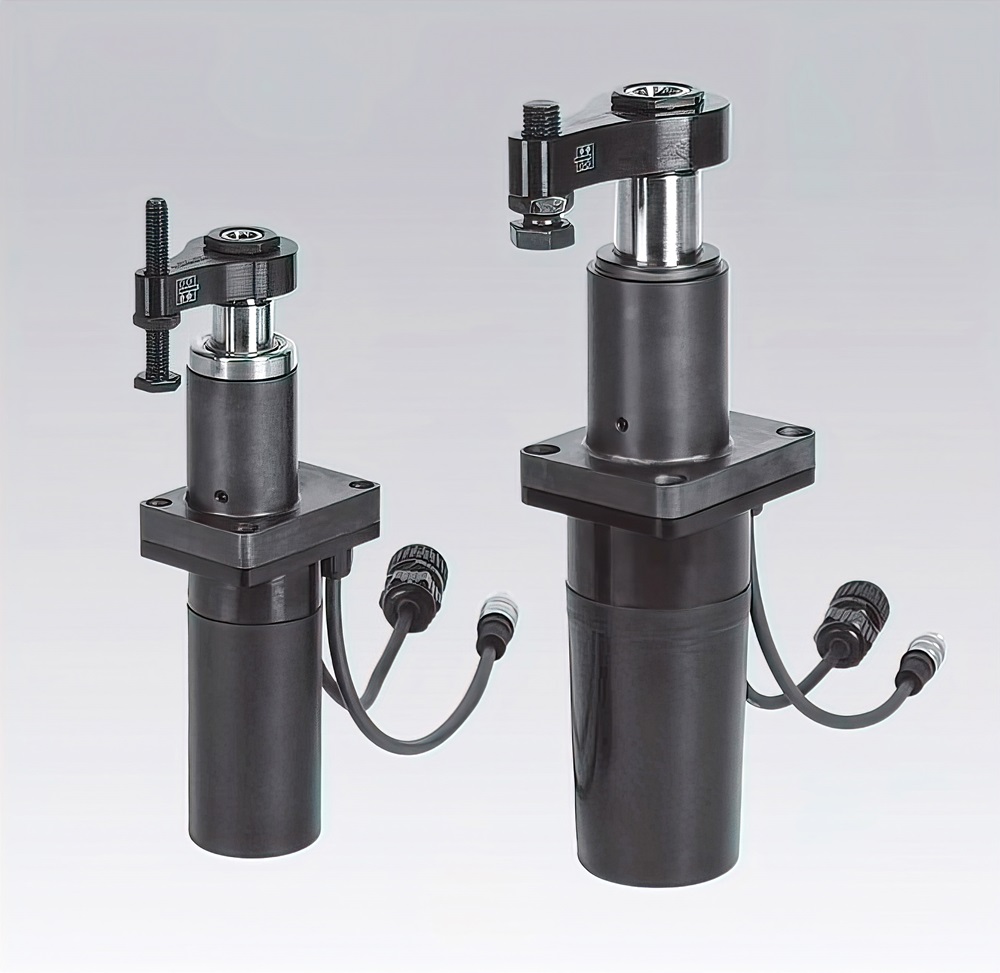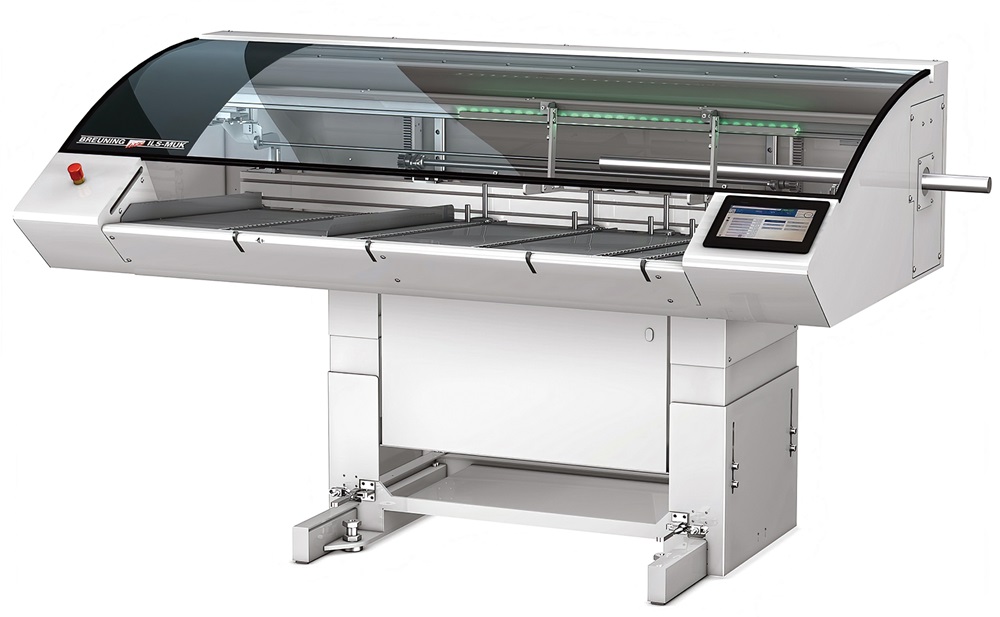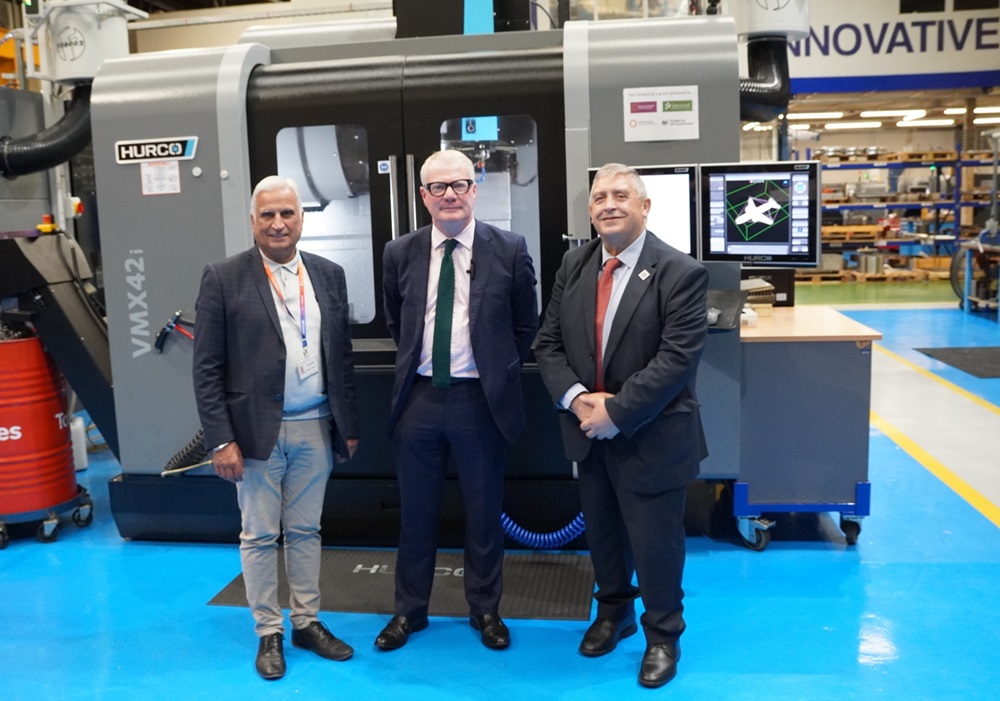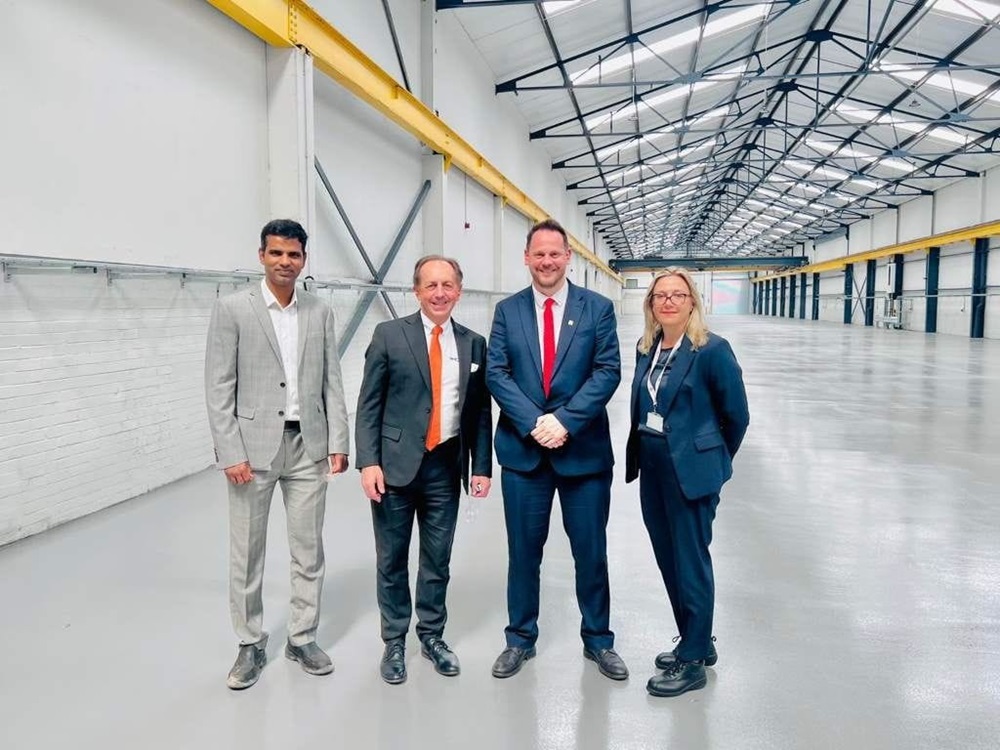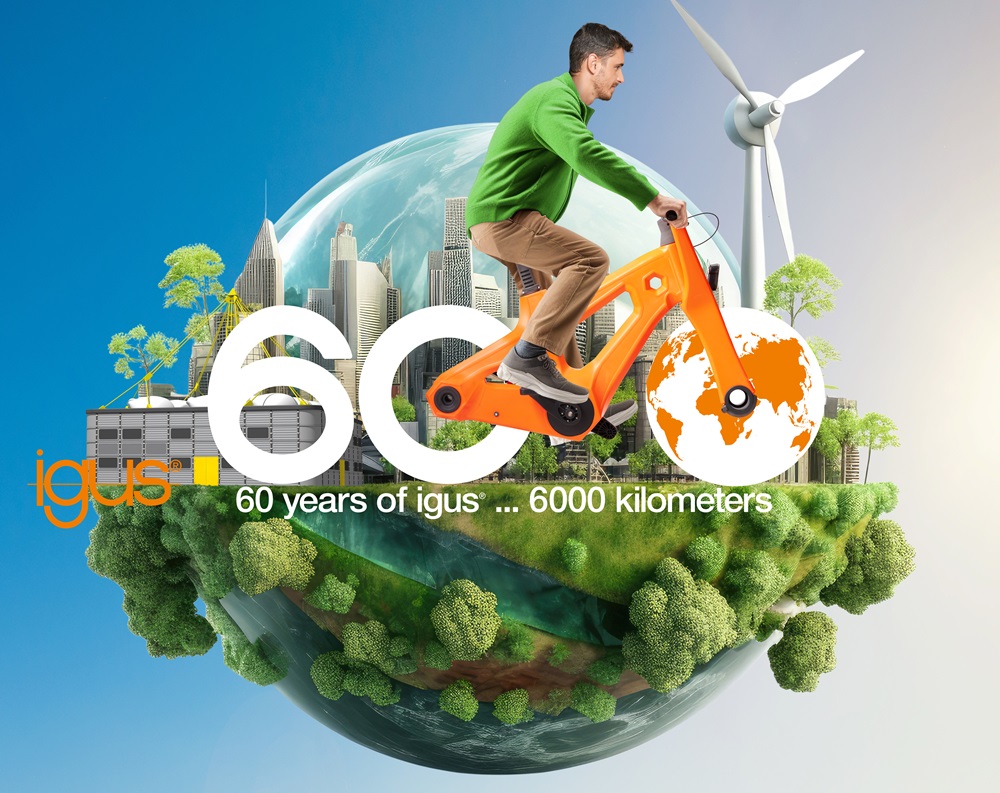A new range of electrically actuated swing clamps capable of generating high forces for securing workpieces during machining is now available from Roemheld UK. Manufactured by Roemheld’s German parent company alongside established pneumatically actuated variants, users can control the latest clamps individually or in multiples. The maintenance-free units are suitable for mounting vertically or horizontally, and work well as part of automated work-holding solutions.
Driven by a wear-resistant, brushless, 24 VDC motor via a gear and threaded spindle, the device requires only 3 mm of axial lift before the clamping arm swivels. According to the model in use, it rotates by either by 90 or 180°, clockwise or counter-clockwise. Other swing angles are available on request. The electronic control for the motor is built into the swing clamp housing and has its own 24 VDC/100 mA power supply.
Two variants of swing clamp are available, 1833 and 1835, the latter having a higher clamping force. For both models, which carry an IP67 ingress protection rating, users can adjust and monitor the force, its maximum value depending on the length of arm deployed. It takes approximately 3 seconds to secure or release a component. Should the power supply fail, there is no loss of clamping pressure.
During unclamping, the arm swings back to its starting position. Should it meet an obstruction during motion, in either direction, automatic and instantaneous motor switch-off protects the mechanism from overload.
More information www.roemheld.co.uk






